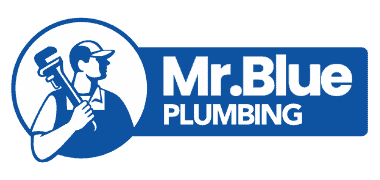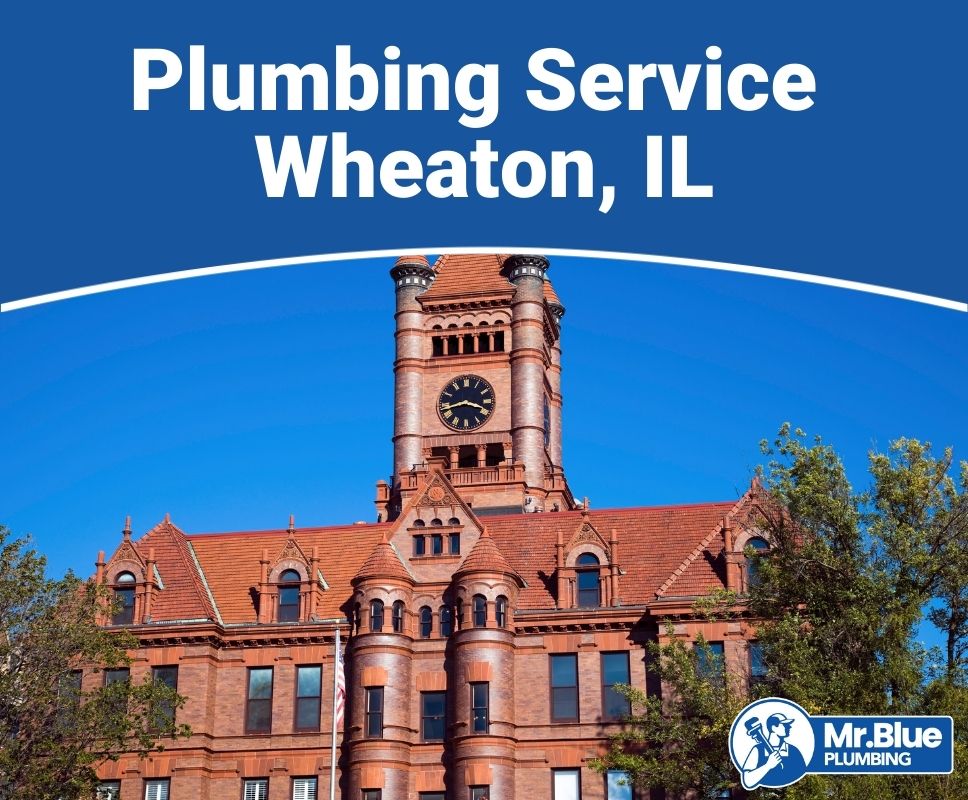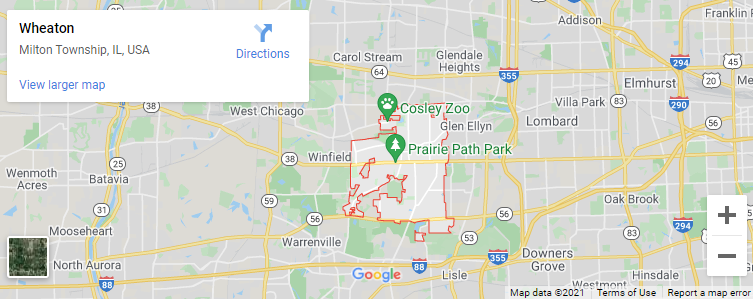Contents (Click To Jump)
- 1 What Are the Most Common Plumbing Issues in Wheaton?
- 2 How Does the Water in Wheaton Affect Your Plumbing?
- 3 How Much Does Plumbing Usually Cost in Wheaton?
- 4 Can Better Plumbing Save You Money in Wheaton?
- 5 When Should You Call the Water Utility Company in Wheaton vs Hire a Plumber?
- 6 When Do You Need Permits for Plumbing Service in Wheaton?
What Are the Most Common Plumbing Issues in Wheaton?
While there are issues unique to older homes, most plumbing problems, such as drippy faucets, are common across all homes. The most problems we have come across in our day-to-day calls around Wheaton neighborhoods include the following:
Running Toilets
Faulty toilets are the most wasteful plumbing fixtures in any home because most toilet leaks are silent and can waste several gallons per day. We have repaired various problems in Wheaton homes, including worn-out flapper seal, twisted chain, maligned float ball, and corroded toilet handle. These issues are moade worse by the city’s very hard water, which can deteriorate your equipment more quickly than soft water.
Clogged Drains
Slow bathroom and kitchen sink drains are pretty common. Accumulation of food particles and grease on sink drain pipes or hair and personal grooming products washed down a bathroom drain result in blockages, hindering proper water flow. Sometimes, soap scum buildup contributes to most clogs, especially kitchen sinks and bathroom or laundry room drain. The mineral deposits left in your pipes from the hard water in the area contribute to clogs and slow drains, especially because they catch other debris, like hair and food particles.
We also come across toilets with drain issues. Excess tissue paper blocking the system or non-flushable items such as wipes cause some of it.
Water Heater
Limescale buildup on a heater’s coils results from Wheaton’s hard water, so corrosion and mechanical breakdown are common challenges, especially in homes with conventional heaters. These cause heating inefficiency, whereby the heater takes too long to heat the water. In other cases, a heater may have fluctuating temperatures, whereby the water suddenly becomes too cold or too hot. However, in issues of complete breakdown, the heater fails to warm the water.
Usually, heaters, especially in Wheaton, require regular flushing to clear the mineral buildup. In addition to solving heating inefficiency, this helps prevent corrosion and subsequent leaks. In the same way, repairs sort most breakdown issues, but if the problems are age-related, we often recommend heater replacement. The recommended lifespan is about 10 and 20 years for the tank-type and tankless heaters, respectively.
Drippy Faucets
Drippy faucets are a universal problem, which is more common in Wheaton City because of the corrosive minerals in the water. Worn-out O-rings, improperly installed washers, and corroded valve seat are some of the leaking causes we commonly encounter.
Leaky faucets are not only annoying but wasteful. Those droplets may not seem as much, but they can escalate the bill quickly if ignored. According to research, household leaks can waste approximately 180 water gallons per week.
Pipe Leaks
Various issues cause pipe leaks. High water pressure or tree roots growing below the pipes loosen joints, causing leaks. Old copper pipes that are common in Wheaton’s aging homes are also susceptible to corrosion and may start leaking over time.
Though some leaks are pretty obvious such as those on the yard, wall, or under the sink, some go unnoticed. The latter are usually detected upon investigating issues such as low water pressure or bloated water bills.
We often recommend regular plumbing system maintenance as this helps detect issues early before they escalate and cause extensive damage. For example, leaks on pipes below the building can lead to foundation movement and spark a load of problems in the building.
How Does the Water in Wheaton Affect Your Plumbing?
In Wheaton City, we source our water from Lake Michigan through DuPage Water Commission. The water is usually hard, with a hardness level of 137 mg/L. Mg/L stands for the number of milligrams of calcium carbonate per liter.
Generally, water hardness is determined by the minerals present, with calcium and magnesium being the primary ions. The U.S. Geological Survey (USGS) tests water hardness based on the level of calcium carbonate present, as explained above.
The various water hardness levels are as follows:
- 0-60 mg/L – Soft
- 61-120 mg/L – Moderately hard
- 121-180 mg/L – Hard
- 181 mg/L – Very hard
Hard water poses no health risks. However, it damages plumbing systems in the following ways:
Limescale Build Up
Usually, the minerals in the hard water accumulate on the pipes, fixtures, and appliances’ surfaces. With time, the buildup narrows the lines leading to low water pressure. In the same way, the minerals coat the water heater coils, leading to heating inefficiency. Buildup on showerhead nozzles and faucets also clogs them, which reduces water pressure.
Corrosion
As the chemicals accumulate, they corrode metallic pipes, fixtures, and appliances. With time, they develop holes and start leaking.
Drain Clog
Some homes use water softeners, which help minimize the effects of hard water on the drain pipes. However, homes using unsoftened water for laundry and washing utensils often use more detergent, which results in the accumulation of soap scum on drain pipes.
Essentially, hard water reacts with detergents, reducing their efficiency. This necessitates using more soap to achieve the required lathering. As the soap scum accumulates on the drain pipes, it gathers other foreign debris such as hair and food particles leading to drain clogs.
Contaminants
Wheaton water passes the federal quality standards. But the disinfection process leaves it with contaminants. Some of the chemicals are necessary as they help keep the water safe throughout the supply lines. However, based on the Environmental Working Group (EWG) reports, nine of them exceed their health guidelines out of the 15 contaminants found in our water.
Contaminants are both harmful to humans and the plumbing systems. While some have a corrosive effect on the metallic supply lines, fixtures, and appliances, others disintegrate rubber linings in the systems.
How Much Does Plumbing Usually Cost in Wheaton?
Our plumbers quote based on several factors. Essentially, labor costs, material costs, and project type are the primary cost determinants. However, other factors such as emergency vs. regular appointments, customer location, etc., also affect the project cost.
Generally, hiring our plumbers may cost you between $100 and $900, with an average rate of $500. But some projects, especially installations and remodeling, can cost you several thousands of dollars.
Cost Factor: Labor Costs
Our plumbers in Wheaton typically charge hourly rates on main projects and flat rates for minor projects such as repairing a sink or toilet. The hourly rates also vary depending on the project complexity. If a project requires the expertise of our master plumbers, such as installing a hot tub or a sump pump, the rates are likely to be higher.
Cost Factor: Materials
Materials are the main cost factors, especially for significant plumbing jobs such as installations and remodeling. The quote you receive will often depend on the quality and type of materials you prefer.
Some materials such as copper pipes cost much higher than plastic ones. If you prefer high-end fixtures, you will also spend more than those opting for standard products. However, you may not have much choice for most fixtures as the City of Wheaton requires using WaterSense-labelled products, where available, for new installations and replacements.
Cost Factor: Project Type
As much as our plumbers charge standard rates, their cost varies widely, depending on the project type. For instance, two projects may have similar time input but cost different amounts due to the materials and expertise required.
Can Better Plumbing Save You Money in Wheaton?
Better plumbing does save money, but this happens in the long run, in most cases. For instance, hiring a cheap plumber may seem like a money-saver, but it’s not always the case. Our experienced plumbers charge premium rates due to their experience.
Hence, hiring an expert plumber like Mr. Blue Plumbing may be costly, but their quality of work can save you money in terms of fewer repairs and replacements. High-quality plumbing materials also cost a top dollar in most cases, but they compensate in durability, and in some cases, water and energy savings.
Below are some ways in which you can save money through better plumbing.
Installing Water-Efficient Fixtures
Since 1994, the fixtures sold and installed in the U.S. meet the federal water-saving standards. However, to conserve our resources, the Environmental Protection Agency (EPA) rolled a WaterSense program. The program certifies products that exceed the federal water-saving requirements by at least 20 percent.
For instance, WaterSense showerheads can reduce your annual water consumption by 2700 gallons and your electricity bill by $70. Similarly, installing a WaterSense toilet can moderate water usage from the standard 1.6 gallons per flush to 1.23 gallons. Overall, WaterSense-labelled fixtures can cut down your water costs by at least 30%.
Fitting Pressure-Reducing Valves
Pressure-reducing valves (PRV) have immense benefits. On top of reducing wear and tear on your main water line and fixtures, they help cut down your water usage. Usually, the water pressure in the Wheaton supply system ranges between 50-75 psi (pounds per square inch). Though the high pressure helps prevent contamination, any pressure above 20 psi is safe. Therefore, installing pressure-reducing valves to regulate the pressure to the level you find convenient within the range of 20-50 psi can lead to significant cuts on your bills.
When Should You Call the Water Utility Company in Wheaton vs Hire a Plumber?
Do you often have difficulties deciding whom to call when faced with a water problem? Below is a quick summary of situations when it’s ideal to call the water utility company vs. hiring our plumbers.
When to Call the Water Utility Company
- If there’s a leak between the B-box and the water main
- If water is not running in your home
- If there’s low water pressure across the neighborhood
When to Hire Our Plumbers
- If there’s a leak anywhere from the B-box towards your house
- If the meter continues running even when all the taps are closed
- If you have low water pressure and you suspect it could be due to a clog in your plumbing system
When Do You Need Permits for Plumbing Service in Wheaton?
The City of Wheaton requires you to obtain a plumbing permit before hiring our plumbers for works such as installation, remodeling, repiping, and significant replacements such as replacing the water heater. However, you do not require a permit for minor repairs and replacements such as repairing a broken toilet or replacing a sink.






